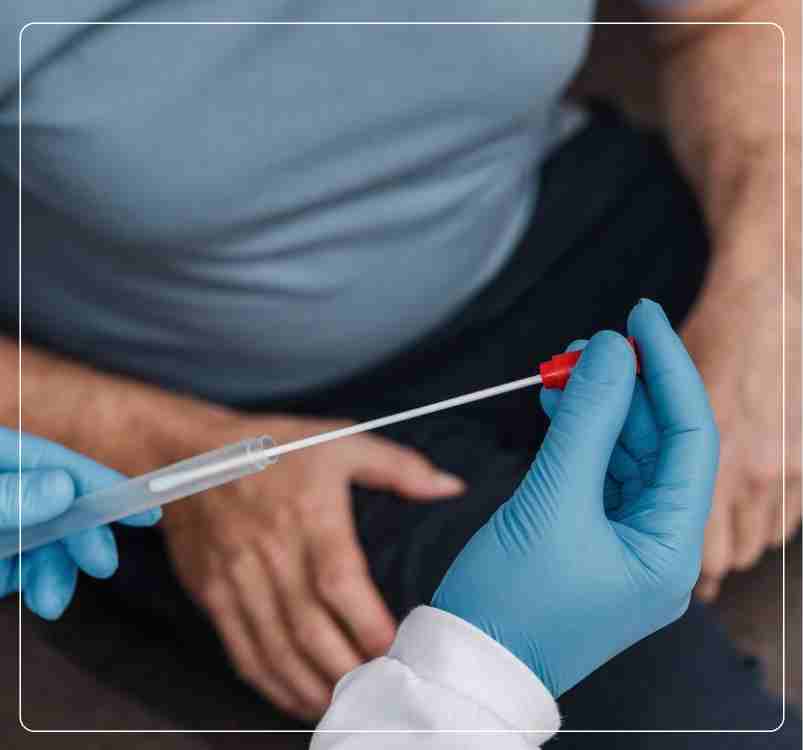Prostate Cancer
Dr. Mukti Mukherjee
[12+ Years Experience]
Radiation Oncologist In Kolkata
Prostate Cancer Doctor in Kolkata
Types of Prostate Cancer
Adenocarcinoma
The most common type that originates in glandular cells.
Small Cell Carcinoma
Neuroendocrine Tumors
Transitional Cell Carcinoma
Squamous cell carcinomas
Reach out: Your path to quality care starts here
58, Canal Circular Rd, Kadapara, Phool Bagan, Kakurgachi,
Kolkata – 700054
Let’s Talk
Symptoms
Pelvic discomfort
For advanced and patient-focused care, consult Dr. Mukti Mukherjee, a specialized radiology therapist in Kolkata.
Risk Factors

Advanced age (60+ years)

Lifestyle and dietary patterns

Family genetic history

Ethnicity (Higher in African-American men)

Hormonal influences

Exposed to agricultural chemicals or combustion byproducts
Evaluation
Your doctor will evaluate your present condition and the spread of the cancer cell by performing
MRI, CT Scans, PET scan, Bone Scan
Risk Stratification
Very Low Risk
Stages
Stage I: Cancer cells are located in the prostate and treatable.
Stage II: Larger tumor but still within the prostate.
Stage III: Cancer has spread to nearby tissues or seminal vesicles.
Stage IV: Advanced cancer that affects lymph nodes, bones, or other organs.
Management
Chemotherapy (in metastatic disease)




